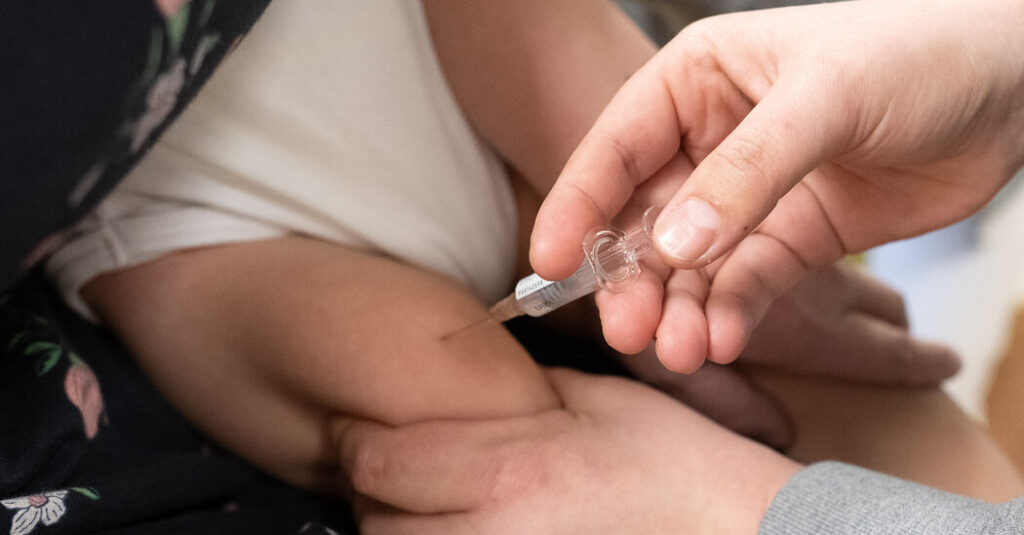
Shortage of RSV Vaccine for Infants: What Parents Should Be Aware of to Ensure Their Babies’ Well-Being
A shortage of the Respiratory Syncytial Virus (RSV) vaccine has raised concerns among parents of infants and healthcare professionals, particularly as the RSV season approaches. With limited vaccine availability, it is crucial for parents to be informed about the situation and to take necessary steps to protect their little ones from this potentially severe respiratory illness.
Respiratory Syncytial Virus (RSV) is a common virus that can cause mild cold-like symptoms in older children and adults. However, in infants and young children, especially those under the age of one, RSV can lead to more severe respiratory infections, including bronchiolitis and pneumonia. It is estimated that RSV leads to thousands of hospitalizations among infants in the United States each year.
RSV typically circulates during the fall and winter months, making this period a concerning time for parents of newborns. The vaccine, which helps reduce the severity of RSV infections, is often recommended for infants born prematurely or with specific medical conditions that put them at higher risk of severe RSV-related illnesses.
The shortage of the RSV vaccine has made it challenging for parents to access this crucial preventive measure, leaving many anxious about their infants’ well-being as the RSV season approaches. To address these concerns and ensure the safety of infants, here is what parents need to know:
1. RSV Season and Symptoms: RSV season usually starts in the fall and can extend into the spring. During this time, it’s essential for parents to be vigilant for signs of RSV infection in their infants. These symptoms include coughing, wheezing, difficulty breathing, rapid breathing, fever, and irritability. If you notice any of these signs, consult a healthcare professional promptly.
2. Risk Factors: Some infants are at a higher risk of developing severe RSV-related illnesses. Premature babies, infants with congenital heart disease, chronic lung conditions, or weakened immune systems are particularly vulnerable. It’s important for parents of high-risk infants to be especially cautious and take preventive measures seriously.
3. Consult Your Pediatrician: Given the limited availability of the RSV vaccine, it is essential for parents to discuss their infant’s individual risk factors and vaccination options with their pediatrician. Healthcare professionals can provide guidance on whether the RSV vaccine is appropriate for their child and, if so, when and where to receive it.
4. Alternative Preventive Measures: In cases where the RSV vaccine is not readily available or is not recommended for a specific infant, there are other preventive measures that can help reduce the risk of infection. These include frequent handwashing, keeping your baby away from crowded places, and avoiding close contact with individuals who have respiratory infections. Good hygiene practices in your household can play a crucial role in protecting your infant.
5. Stay Informed: Keep yourself updated on the RSV situation in your area and the availability of the vaccine. The vaccine shortage is a dynamic situation, and vaccine availability may change. Staying informed will enable you to take prompt action to protect your child.
6. Seek Immediate Medical Attention: If your infant exhibits severe symptoms of RSV, such as rapid or labored breathing, bluish lips or fingernails, extreme fatigue, or a persistent high fever, seek immediate medical attention. Quick medical intervention can make a significant difference in the outcome for infants with severe RSV infections.
7. Be Supportive: Remember that RSV can be a challenging illness for infants, and it can be equally distressing for parents. Providing emotional support and seeking help from your healthcare provider is crucial. Ensuring that your baby is comfortable and receives the necessary medical care is the top priority.
The shortage of the RSV vaccine is undoubtedly a cause for concern, and it highlights the importance of taking proactive measures to protect infants from this common and potentially severe respiratory virus. Although vaccine availability may be limited, parents can still play a significant role in safeguarding their children’s health by staying informed, being cautious, and seeking professional guidance.
Healthcare professionals and public health authorities are actively working to address the vaccine shortage and ensure that infants who are at the highest risk receive the necessary protection. In the meantime, parents must remain vigilant and informed to protect their precious little ones during the approaching RSV season.
RSV is a common virus, and while most infants recover from it without complications, it can pose a significant risk to some. The shortage of the RSV vaccine serves as a reminder of the importance of preventive healthcare, open communication with healthcare providers, and the need for parental diligence in safeguarding their infants from preventable illnesses. With a proactive approach, parents can navigate this challenging situation and keep their babies safe and healthy.







